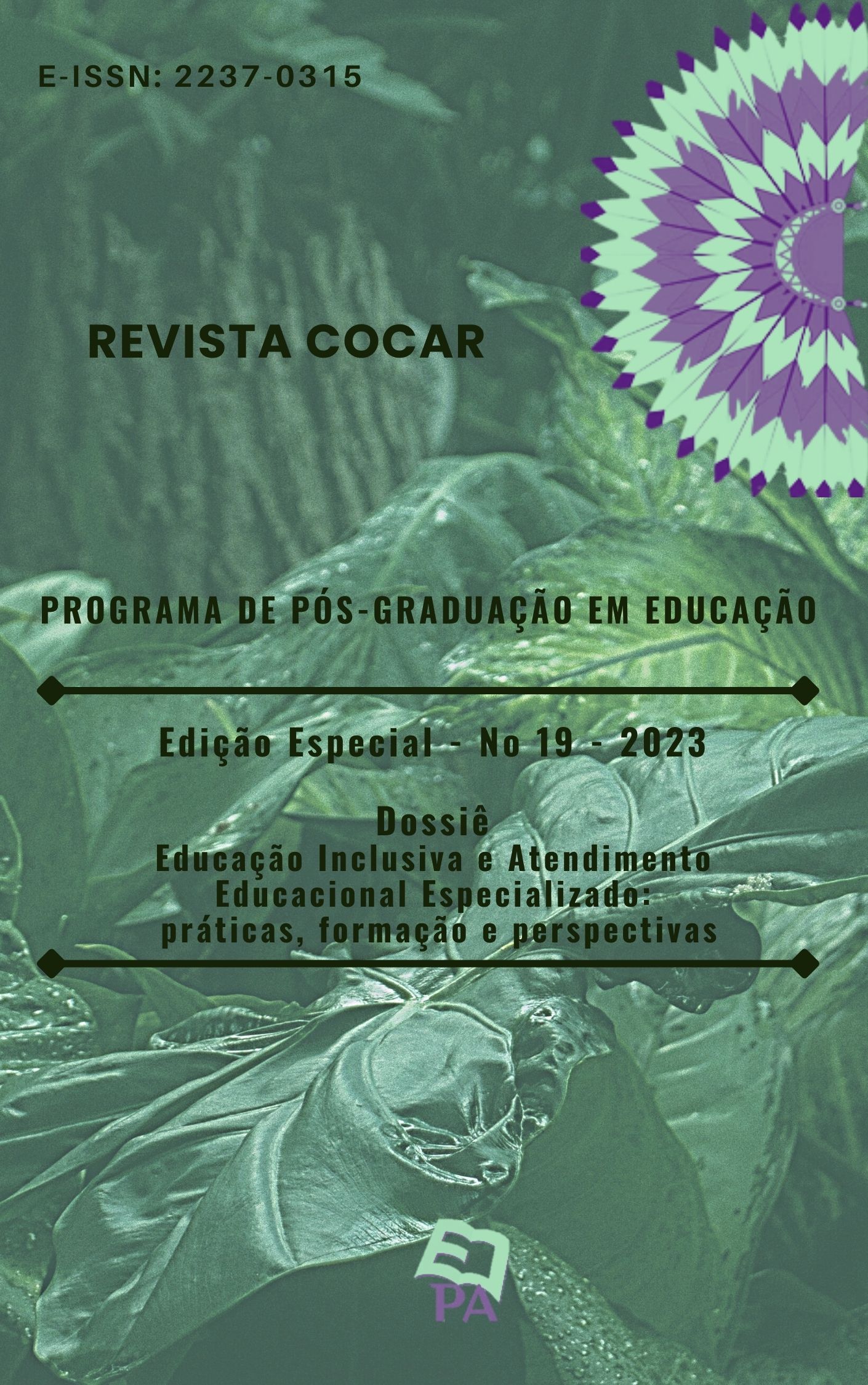A Educação Especial sob a máscara do ensino não presencial
The Special Education under the mask of the non-presential teaching
Resumo
O presente artigo se trata de um recorte da pesquisa de dissertação realizada no PPGEEs da Universidade Federal de São Carlos. Tem como objetivo, buscar e analisar produções acadêmicas que tratam do ensino não presencial para o público-alvo da Educação Especial, na educação básica brasileira, no ano de 2020. Para responder ao objetivo, se realizou revisão bibliográfica, na Biblioteca Eletrônica Científica Online (SciELO) e Periódicos Coordenação de Aperfeiçoamento de Pessoal de Nível Superior – CAPES. Os resultados apontaram que o Brasil seguiu as orientações de organismos internacionais e adotou o ensino não presencial para as atividades escolares no ano de 2020. As pesquisas apontaram que as medidas adotadas não consideraram as especificidades dos estudantes público-alvo da Educação Especial, bem como a ausência de formação e recursos digitais dos professores e das famílias dos estudantes.
Palavras-chave: Educação Especial; Ensino não presencial; Educação Básica.
Abstract:
The present article is a piece from the thesis carried out on the PPGEEs of the Federal University of São Carlos. It has as its objective, to search and analyze the academic productions that deal with the non-presential teaching for the target public of the Special Education, in the Brazilian basic education, in the year of 2020. In order to answer the objective, a literature review was carried out on the Scientific Electronic Library Online (SciELO) and the Periodicals of the Coordination for the Improvement of Higher Education Personnel – CAPES. The results pointed out that Brazil followed the orientations of the international organs and adopted the non-presential teaching in order to resume the school activities in the year of 2020. The researches pointed out that the actions taken did not consider the specificities of the target students of the Special Education, as well as the absence of formation and digital resources of the teachers and the students’ families.
Keywords: Special Education; Non-presential teaching; Basic Education.
Downloads
Downloads
Publicado
Métricas
Visualizações do artigo: 102 pdf downloads: 66























